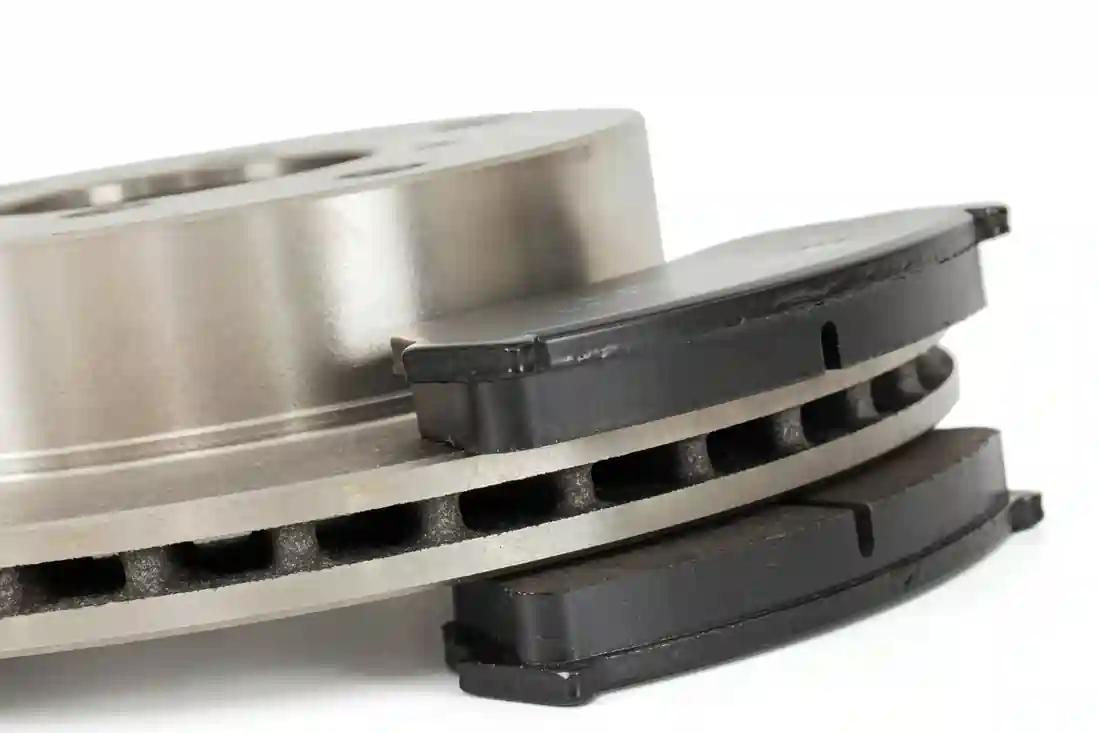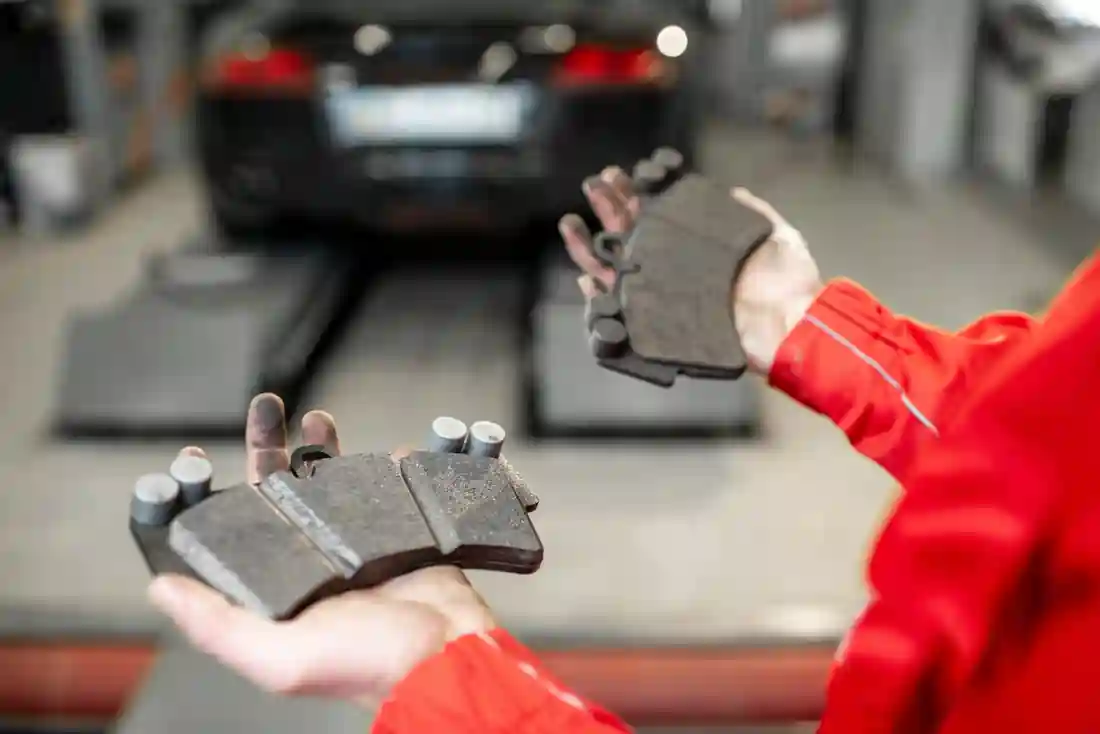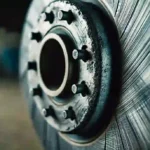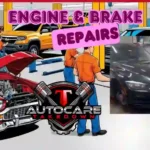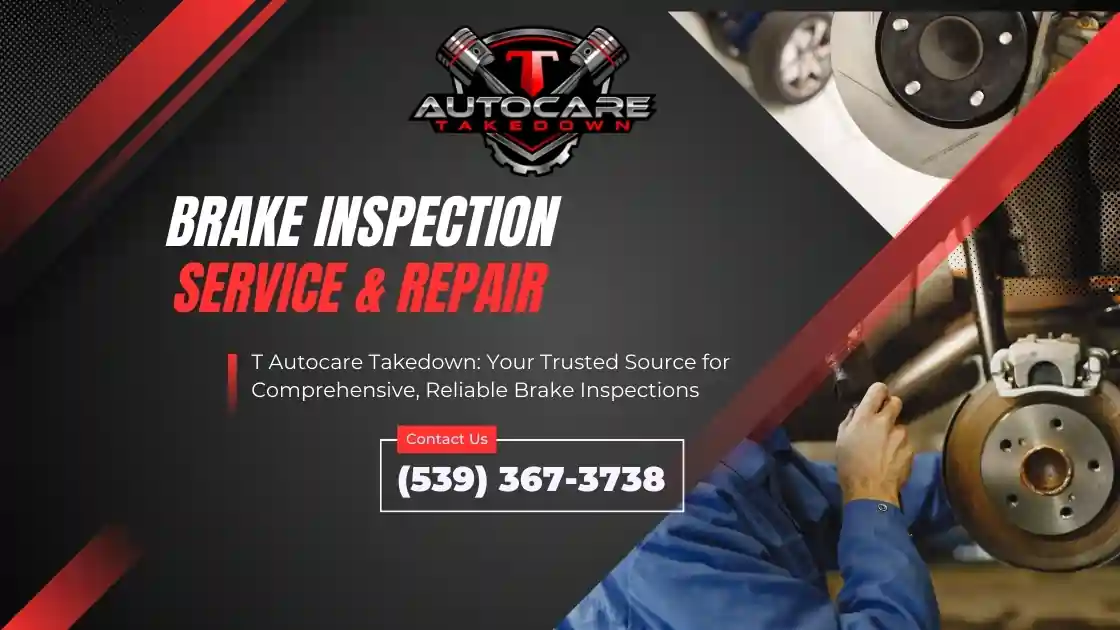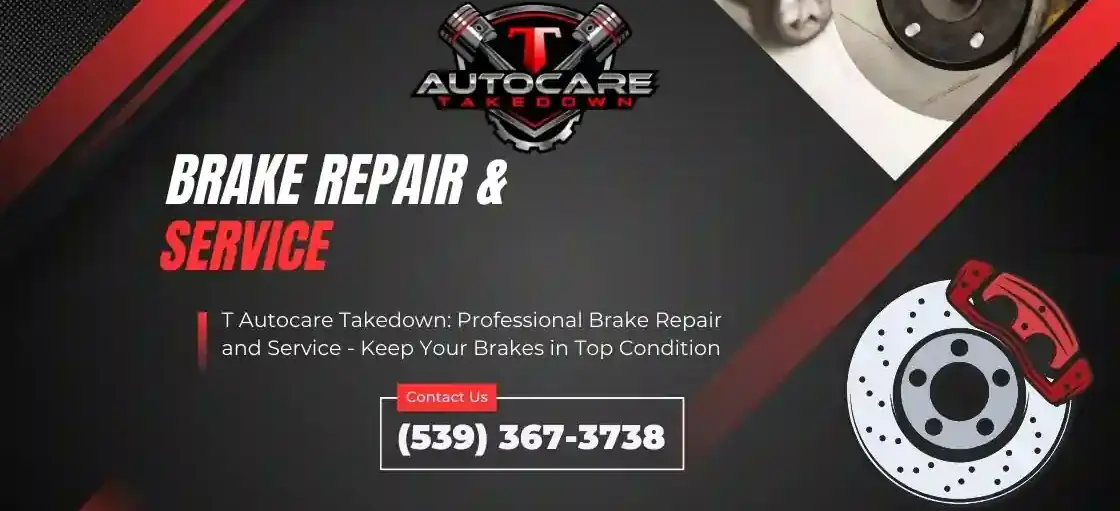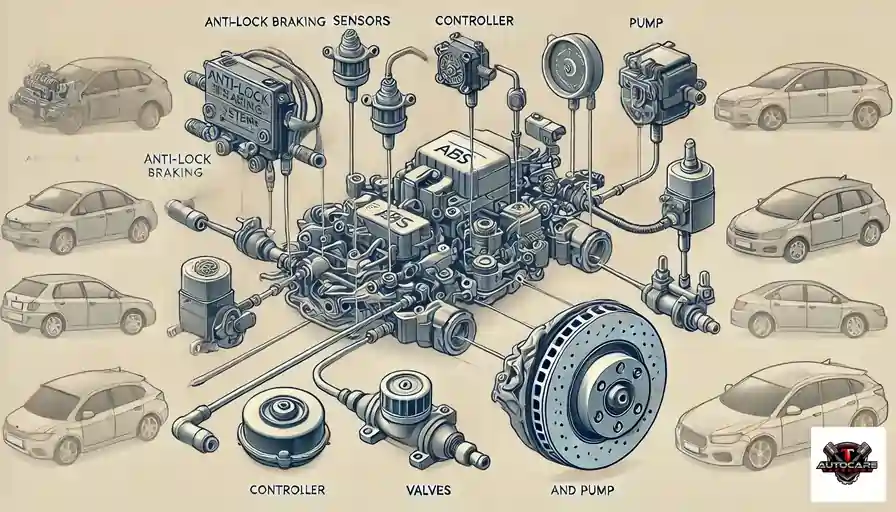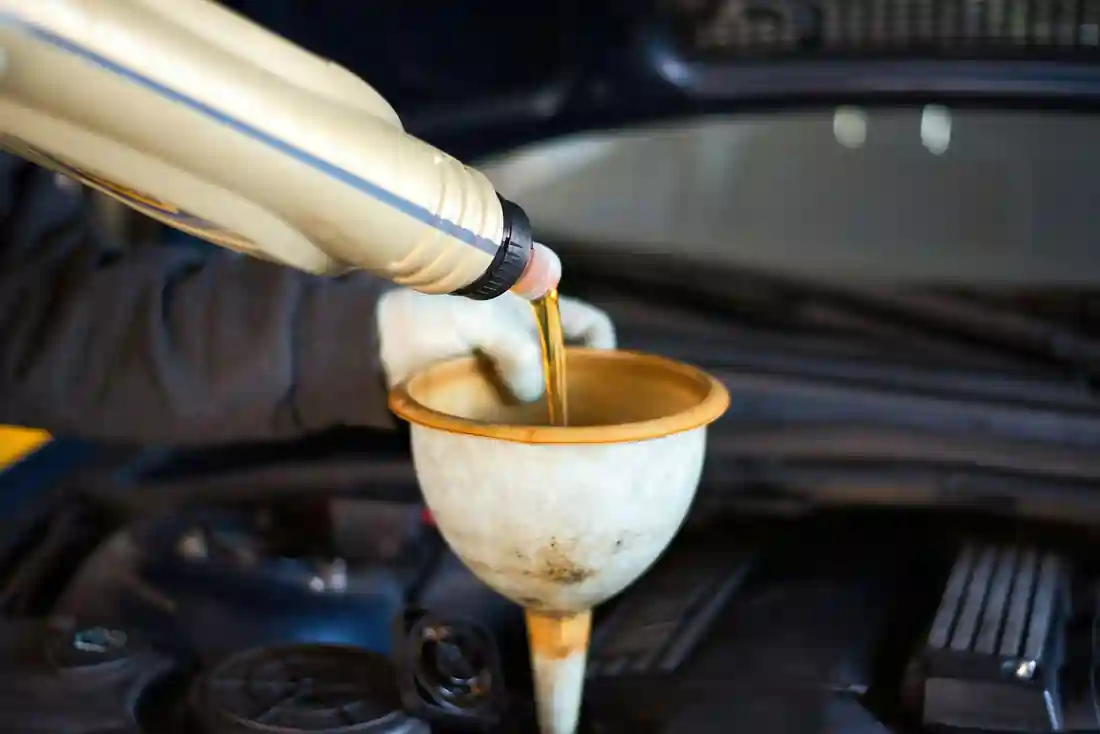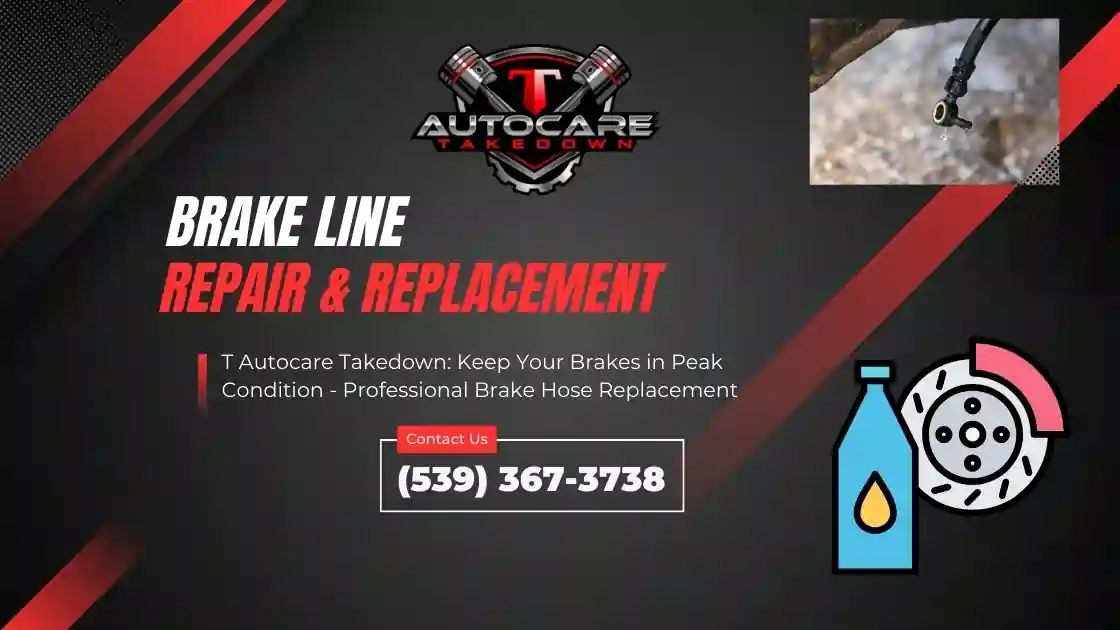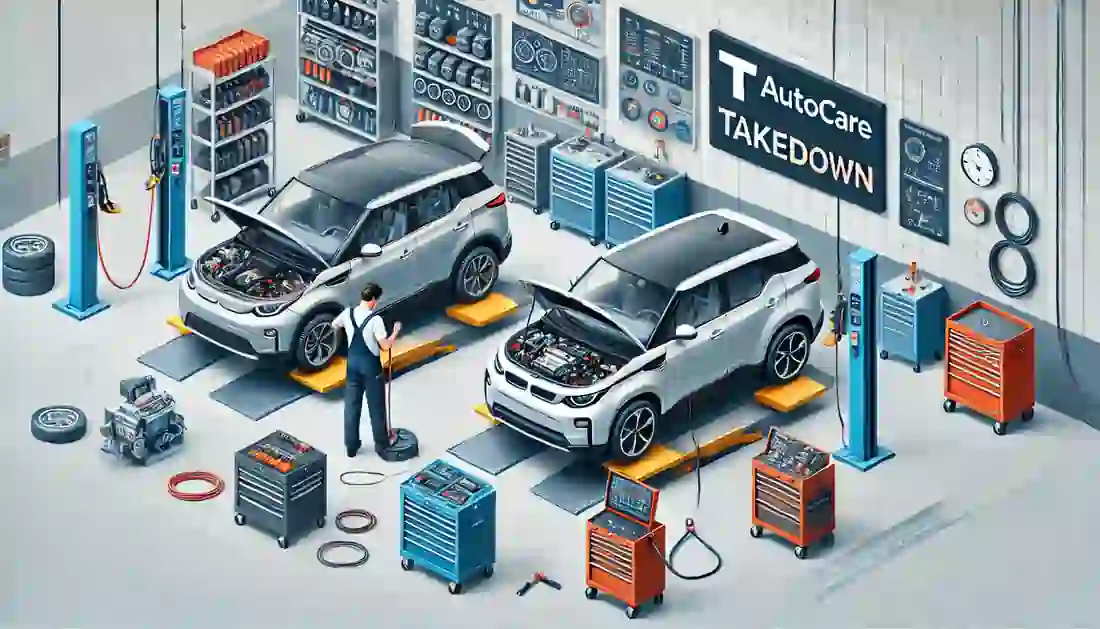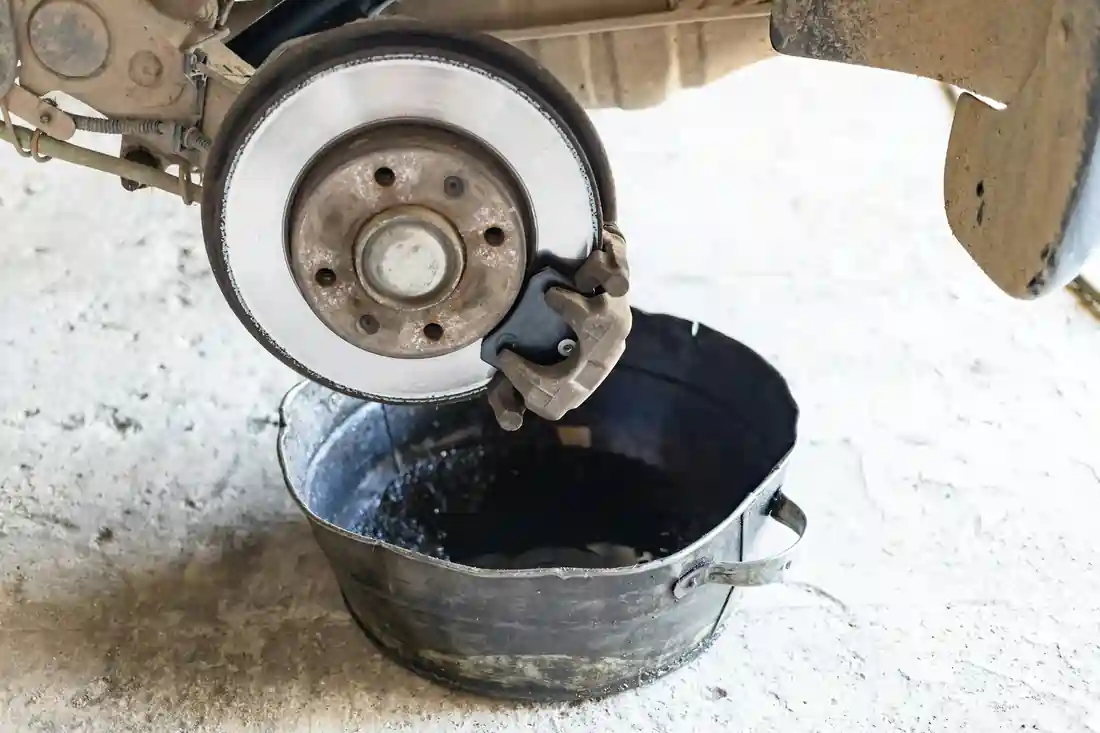Taking care of your car’s braking system is important for your safety and for how well your car runs. Brake rotors are key parts of the braking system, and they need to be checked often. If they’re worn out or damaged, they should be replaced to avoid bigger problems.
In this guide, we’ll explain the signs that show your rotors might need replacing. Knowing these signs can help you keep your car safe. For more details on brake care, you can read our guide on brake inspections.
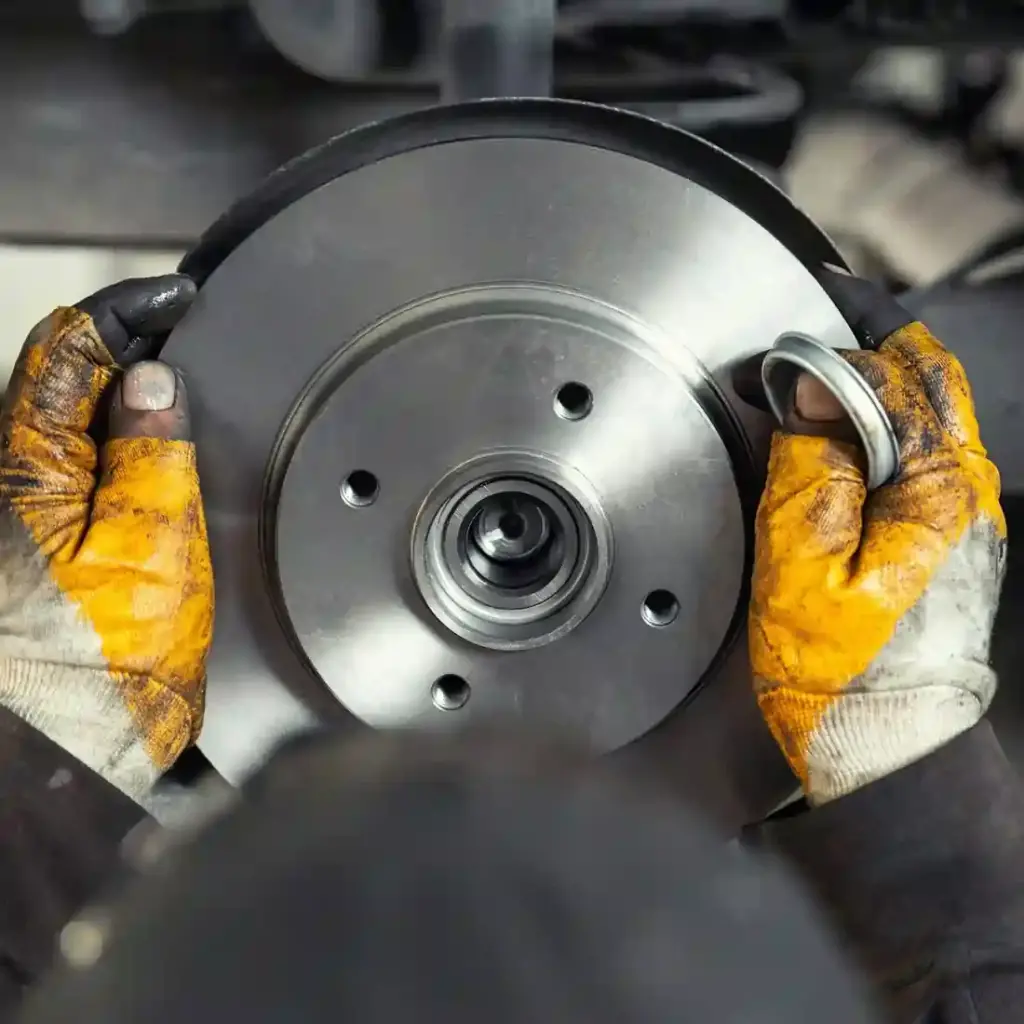
How to Spot the Signs of Worn Brake Rotors
Knowing when your brake rotors need replacing is key to avoiding more serious issues with your car. Over time, rotors can wear down, warp, or get damaged, which affects how well your car can stop. Recognizing the signs of rotor wear early on will help you stay safe on the road and avoid costly repairs. In the next sections, we’ll go over the most common signs that your rotors might need attention and what you can do to fix them.
1. Squealing or Squeaking Noises
If you hear a high-pitched squealing noise when you hit the brakes, it’s often a sign that your rotors are starting to wear out. This noise happens because the brake pads are not making proper contact with the rotors, usually due to rotor wear or warping. Ignoring this sound can lead to more serious brake problems down the road. If you’re unsure, it might be time for a brake inspection to find the cause of the issue.
2. Vibration or Pulsation in the Brake Pedal
When you press the brake pedal, it should feel smooth and steady. If you feel vibrations or pulsations, especially when you brake at higher speeds, this is a sign that your rotors might be warped. Rotors can warp when they get too hot, which causes them to lose their shape and affect your braking. If you’re experiencing these issues, check out our guide on common brake problems and how to identify them for more detailed information.
3. Steering Wheel Vibrates When Braking
If your steering wheel vibrates when you brake, it’s likely because your rotors are warped. The uneven surface of the rotors causes the brake pads to press unevenly, which makes the steering wheel shake.
4. Increased Stopping Distances
If your car is taking longer to stop than usual, worn rotors could be the problem. As rotors wear down, they become less effective at helping your brakes create the friction needed to stop your car quickly. This means it will take more time and distance to bring your vehicle to a complete stop, which can be dangerous in emergency situations. If you’re noticing this issue, it’s important to get your brakes checked to avoid further damage. For more information on keeping your braking system in top shape, check out our guide on brake repair and maintenance.
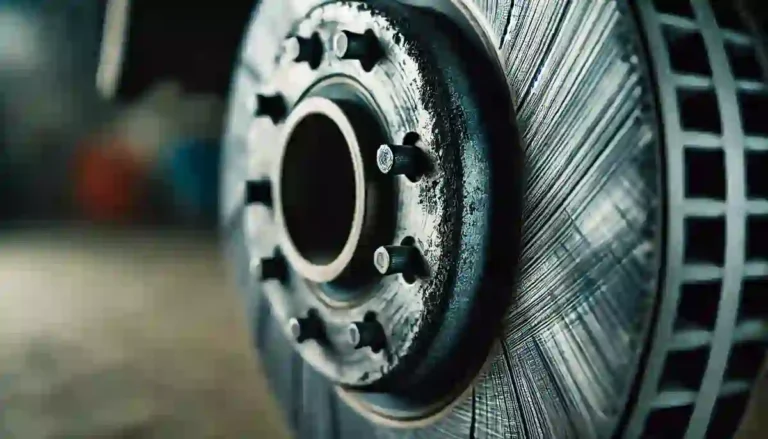
5. Grooves or Score Marks on the Rotors
A simple visual inspection can tell you a lot about the condition of your rotors. If you see grooves, score marks, or other signs of damage, it’s a clear indication that your rotors are worn and need to be replaced. Regularly checking your rotors during routine maintenance can help you catch these issues early, preventing more serious brake problems. To learn more about keeping your brakes in top shape, visit our guide on brake inspections.
6. Blue Coloration on the Rotors
When rotors get too hot, they can turn blue. This color change means the rotors have overheated. Overheated rotors can become weak and may not work as well, which can make it harder to stop your car safely. If you see a blue tint on your rotors, it’s a sign they need to be checked because they might not be able to provide the stopping power you need.
7. ABS Warning Light
If your car has an Anti-lock Braking System (ABS), the warning light on your dashboard could mean there’s a problem with the rotors. While the ABS light can turn on for different reasons, worn rotors are often one of the main causes. It’s important to get this checked to make sure your braking system is working properly. Learn more about ABS systems and their maintenance to keep your car safe.
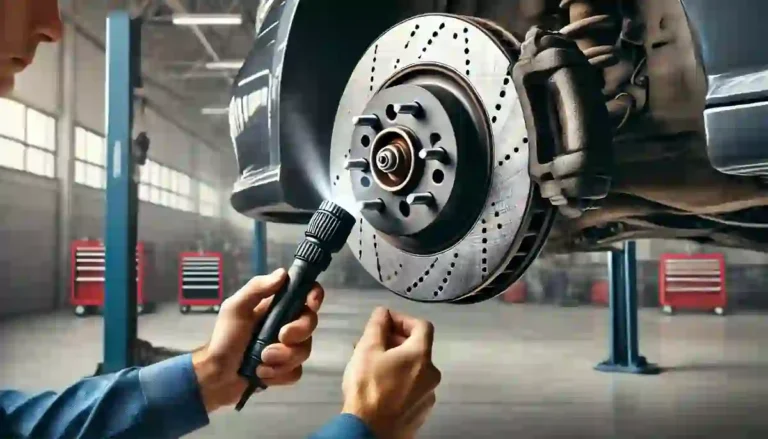
8. Professional Recommendation
Sometimes, the best way to find out if your rotors need replacing is to have a professional inspect them. If your mechanic recommends replacing the rotors, it’s usually because they’ve carefully checked them and measured their condition.
Tips for Extending Rotor Life
1. Regular Inspections
Check your rotors every 10,000 miles or whenever you change your brake pads. This helps catch any wear or damage early.
2. Avoid Hard Braking
Try not to brake hard or ride the brakes for long periods. This can help your rotors last longer.
3. Replace Pads and Rotors Together
When replacing your rotors, it’s a good idea to replace the brake pads at the same time. This keeps your braking system working at its best.
Related Brake Service: Broken Arrow Brake Repair and Service
Conclusion: Keep Your Rotors and Brakes in Great Condition
Maintaining your rotors is essential for your safety and your car’s performance. By paying attention to the signs of wear, such as strange noises or a vibrating brake pedal, you can avoid serious issues. Regularly inspecting your rotors and keeping up with routine brake maintenance will help ensure that your braking system stays in top condition.
Good driving habits also play a key role in rotor longevity. Avoiding hard braking and giving your brakes time to cool after heavy use can extend the life of your rotors. If you’re unsure whether your rotors or other brake components need attention, it’s always a smart idea to get a professional brake inspection.
For more tips on maintaining your brakes, check out our articles on safe driving in rainy conditions and how regular tire rotations can improve your vehicle’s overall performance. By staying proactive with your vehicle’s maintenance and adopting safer driving habits, you can avoid costly repairs and stay safe on the road.
For professional brake rotor inspection and replacement, visit us at T Autocare Takedown, 1501 W Detroit St, Broken Arrow, OK 74012, or call us at (539) 367-3738. We provide expert auto repair Broken Arrow services to ensure your vehicle’s braking system is in optimal condition.
Useful Links on Brake Rotor Replacement:
- 7 Signs Your Brake Rotors Need Replacing (Brake Experts)
- How and When Should I Replace My Brake Rotors (The Drive)
- 4 Signs It’s Time for Rotor Replacement (Tires Plus)
- How to Tell If You Need New Brake Rotors (PowerStop Brakes)

